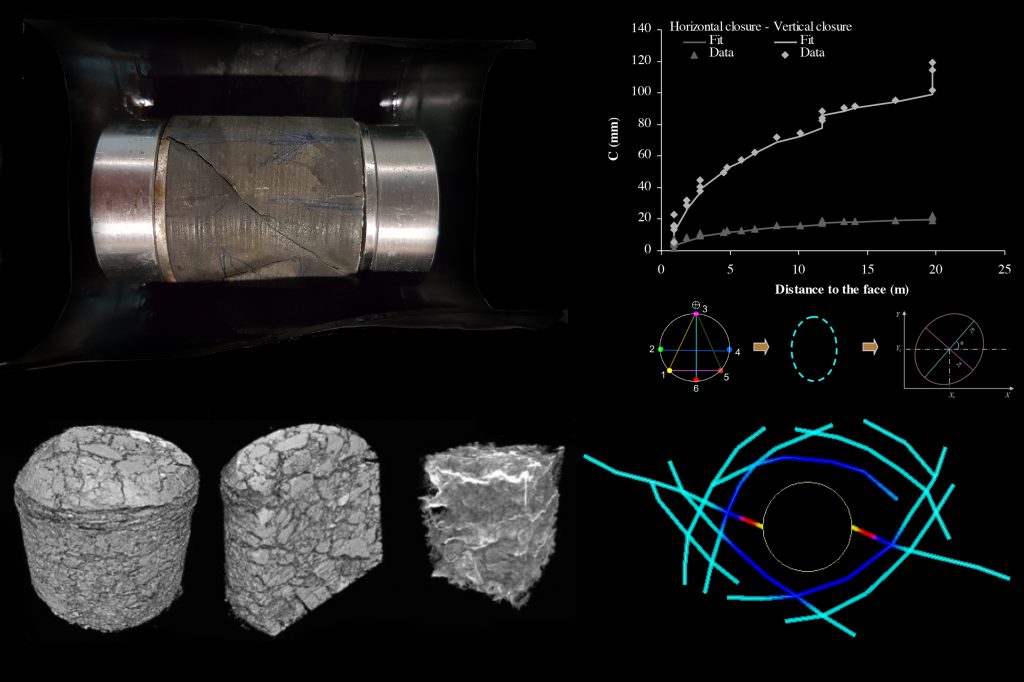Geological storage covers two main application fields, radioactive waste disposal and CO2 sequestration. Researches on radioactive waste disposal, started in 1994, are performed in collaboration with the main organizations in charge of waste management in France, Switzerland and Belgium. They cover a wide range of topics including the investigation of the microstructure and THMC behaviour of various components of the storage system, such as clays, claystones, compacted bentonites and cementitious materials. They also include the analyses of in-situ measurements in underground laboratories and the numerical simulations of the storage systems, from the excavation to the long-term behaviour. Researches related to the geological sequestration of CO2 include the risk of leakage through the well/caprock interface, the risk of induced seismicity, the effect of CO2 on the fracture properties of reservoir rocks, the hydro-chemo-mechanical couplings due to reactive fluid flow, the injectivity losses induced by salt crystallisation in saline aquifers or by coal swelling in coalbed reservoirs during CO2 injection, and enhanced coalbed methane recovery.



